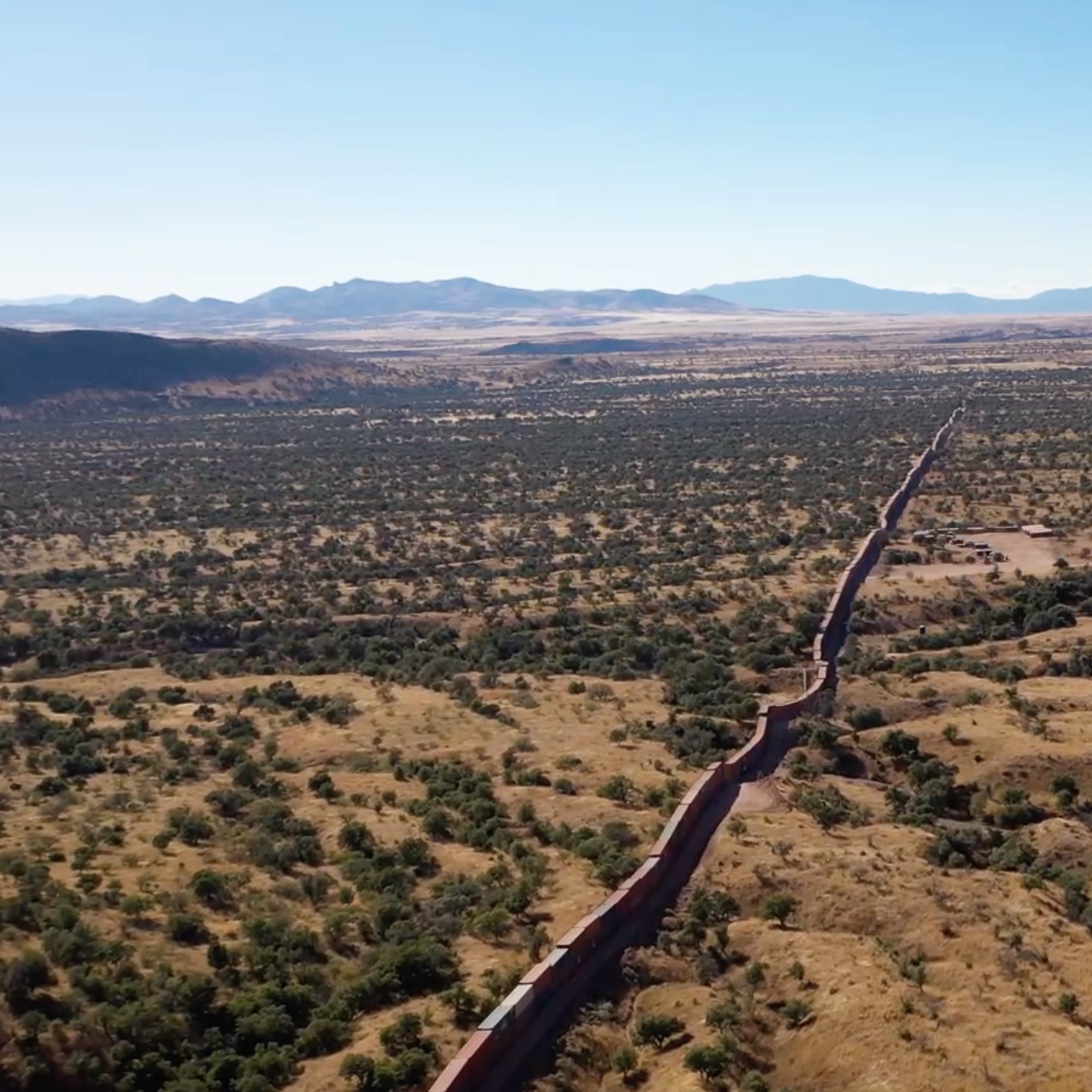“The Environmental Consequences of Gov. Ducey’s Rogue ‘Border Wall’”
High Country News, 15 November 2022
“Despite the wall’s slapdash construction, it poses a major threat to the region’s unique environment. The Coronado’s public lands are part of the Sky Islands region, a unique network of mountain ranges that rise up from the Sonoran Desert and whose ecosystems change dramatically as their elevation increases. The area is critical habitat for jaguar, according to Myles Traphagen, Borderlands Program Coordinator at the Wildlands Network, and ocelot have been documented nearby. ‘It couldn’t be a worse location,’ he said in a phone call after my visit.
The containers impede wildlife crossings more than the federal wall, which has four-inch spaces between its “bollards,” or posts. Ironically, however, the containers would be much easier for humans to climb than the bollard fence, if they attempted it. ‘[Containers are] designed with gripping points and handles,’ said Traphagen.”
High Country News, 15 November 2022
“Despite the wall’s slapdash construction, it poses a major threat to the region’s unique environment. The Coronado’s public lands are part of the Sky Islands region, a unique network of mountain ranges that rise up from the Sonoran Desert and whose ecosystems change dramatically as their elevation increases. The area is critical habitat for jaguar, according to Myles Traphagen, Borderlands Program Coordinator at the Wildlands Network, and ocelot have been documented nearby. ‘It couldn’t be a worse location,’ he said in a phone call after my visit.
The containers impede wildlife crossings more than the federal wall, which has four-inch spaces between its “bollards,” or posts. Ironically, however, the containers would be much easier for humans to climb than the bollard fence, if they attempted it. ‘[Containers are] designed with gripping points and handles,’ said Traphagen.”

Photos credit: Russ McSpadden

